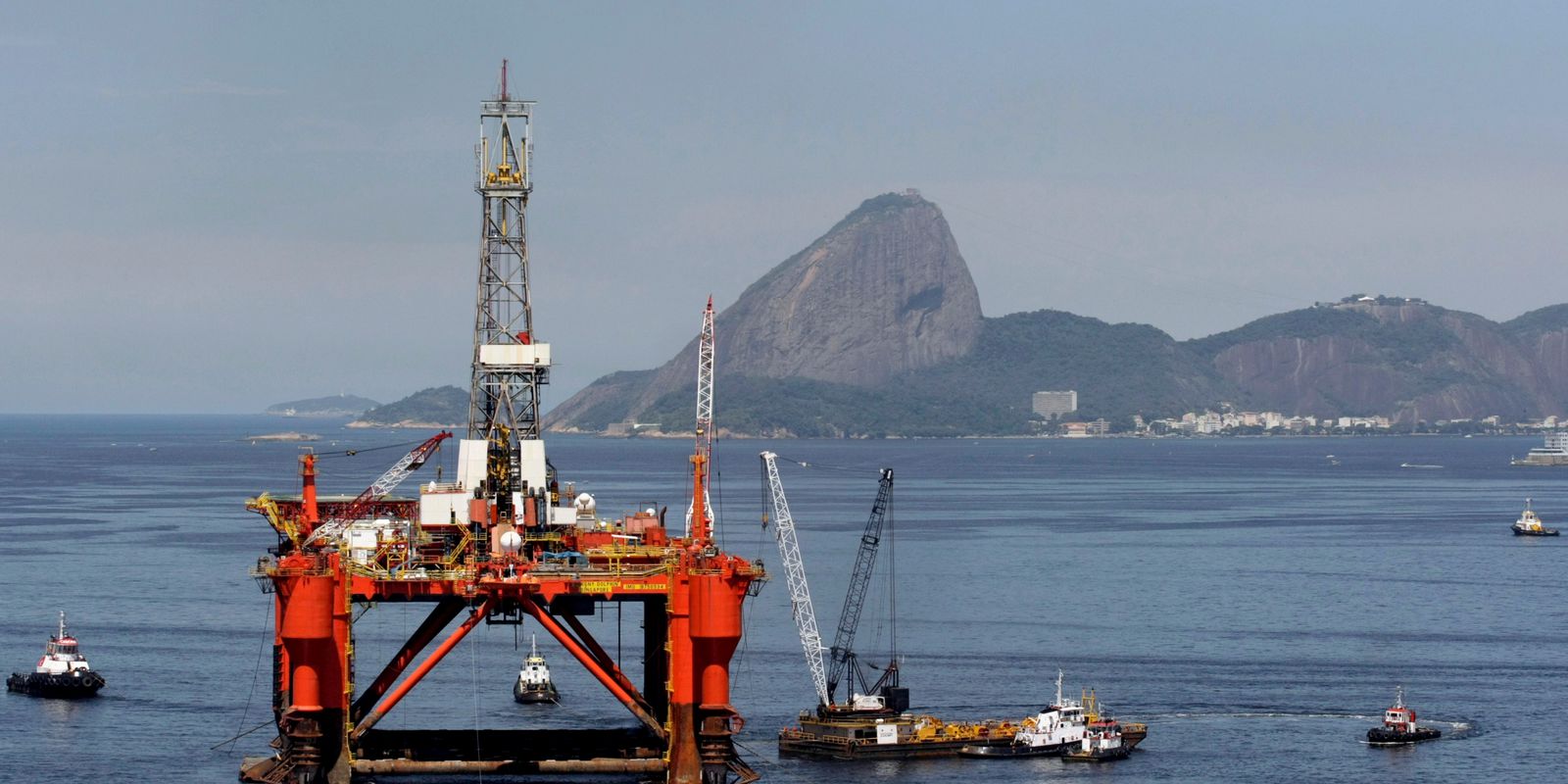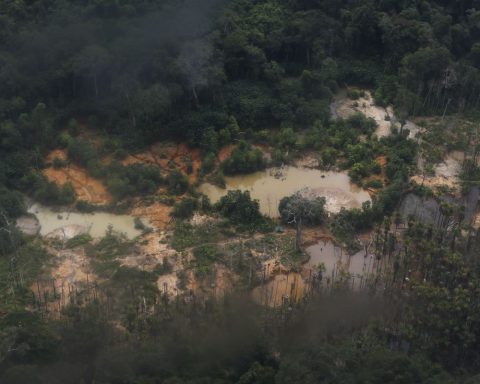A survey released today (3) by the Brazilian Association of Petroleum Services Companies (ABESPetro) indicates that investments by the oil and gas industry in Brazil will reach around US$ 24 billion per year, or the equivalent of R$ 102 billion/ year, until 2025. The association’s executive secretary, Thelmo Ghiorzi, explained that this value is based on the investments that Brazil will make in the coming years and of which the pre-salt corresponds to 62% today. “It will reach 70% by 2030”, he estimated. The projects already approved total investments of US$ 156 billion by 2030.
Considering that the known reserves were auctioned, with investments also being made in these areas, the 2030 Decennial Plan, from the Ministry of Mines and Energy (MME), published last year, presents a potential of US$ 415 billion in investments for the sector until 2030 , highlighted Ghiorzi. “The number would be even higher,” he added.
According to the association, Caderno ABESPetro 2022 launched today is the largest survey of the first link in the oil production chain, in which companies that supply goods and services directly to oil companies are located. The study was prepared with the support of Deloitte consultancy. The first ABESPetro Notebook was published in 2017.
right choices
The organization’s president, Rodrigo Ribeiro, told the Brazil Agency that the value established in the Ten Year Plan represents the potential of the industry, “if we make the right choices. The notebook seeks to translate the special moment that we live in the industry, which is the moment of choices, of transformation”. Ribeiro recalled that, over the years, Brazil has registered more than two decades of auctions, with an interval of five years without trading sessions, which caused a “high price” for the industry. The moment, according to him, does not allow any more wrong choices regarding the industry.
Ribeiro drew attention to the fact that the world is repositioning itself in relation to the energy matrix, in the context of energy transition, on the one hand, and energy security, on the other. “There is a very strong debate about this and the world is repositioning itself.”
In the booklet, ABESPetro shows that Brazil has a “natural and unparalleled” vocation for exploring natural resources in the oil and gas sector. “But society does not benefit alone, the nation does not benefit alone, if these investments are not made and if the resources are not effectively exploited”. The moment is also a strategic choice for the country, pointed out the president of ABESPetro.
The president of the entity said that for a series of economic, social and environmental reasons, Brazil should not give up one of the “few and great islands of excellence” that it has in terms of opportunity to leverage the future, for a country that is lacking in many areas. For ABESPetro, the decision to invest in the oil and gas industry is “strategic and crucial” for the country.
The publication presents suggestions for instruments for the full use of these productive resources. Among them, we highlight the promotion of the energy transition through incentives for gas production; the acceleration of production, with the speeding up of auctions for exploratory blocks; stability and expansion of Repetro; and improvements to instruments to encourage research, development and innovation (PDI) and local content (CL). Repetro is the special customs regime for the export and import of goods intended for research activities and mining of oil and natural gas deposits.
jobs
With an estimated average investment of R$ 102 billion per year in exploration and production until 2025, the expectation is to generate around 500 thousand new jobs in the activity of exploration and production of oil and gas, the so-called upstream, in the next three years. Currently, there are about 340 thousand jobs in this segment of the sector.
Taking into account that the propositional agenda suggested by ABESPetro will be materialized and Brazil will make a strategic choice for the segment, exploring all the existing potential, Rodrigo Ribeiro stated that there is talk of an additional generation of 1 million more jobs by 2030, mainly from 2026 onwards. “We can reach a total of more than 1.5 million jobs by 2030”.
Research and Development
The ABESPetro survey highlights, on the other hand, that oil reserves are not enough for a country to become a major producer of oil and gas, but that the potential of the natural resource must be leveraged by advances in research, development and innovation. (PDI). Rodrigo Ribeiro indicated that Brazil has a regulation that proposes to deal with the matter but, “unfortunately”, it is still not producing practical and adequate effects as desired. “The regulation needs adjustments so that it truly becomes a vehicle for the strategic production of content, research and development that will leverage the industry and make it possible for us to use all the resources available in our industrial park and in our creation of jobs. of work for the industry”.
He assured that the biggest problem in Brazil is not the lack of resources, because the current regulation already assigns 1% of all investment in the exploration and production area to research and development, but the practical result is not being effective. Last year, this amounted to R$ 3 billion. This year, it is already at R$ 1.3 billion. “We need to advance in this, especially with regard to new technologies, to make industrialization in Brazil really benefit from all the potential we have at hand. We need to improve the regulation to make this actually happen”, stressed Ribeiro.
Thelmo Ghiorzi added that this money is directed to oil companies and universities, to carry out basic and innovative research, but does not, however, reach companies in the oil and gas production chain to develop innovations and be an exporter of locally developed products, for example. “This happens, but they are specific cases; It’s not a systemic thing. According to Ghiorzi, there is interest and capacity, but regulation needs to be improved.
ranking
The ABESPetro Notebook reveals that despite having smaller reserves than Brazil, countries with high investment in PDI, such as the United States and South Korea, end up standing out on the world stage. China, which is one of the global leaders in the digitization of the industry, invests 2.14% of its Gross Domestic Product (GDP, the sum of all goods and services produced in the country) in PDI. This took China to second place in the ranking of refining capacity, although its daily production is about 60% lower than that of the United States, which occupies the first position. Brazil, which is the tenth largest producer in the world, maintained an average of 1.16% of its GDP invested in PDI.
The president of ABESPetro reiterated that there is a huge universe of opportunities from which Brazil and companies could benefit, including in terms of job creation, in relation to research focused on the energy transition. “I usually say that the oil and gas industry is the mainspring of the energy transition. In our view, the oil and gas industry is the major energy transformation industry and many companies invest heavily in energy transformation projects, in renewable generation projects, in capturing emissions. Much could be done if research and development resources could be applied in this segment as well,” he commented. “We would have a modern industry in a position to lead this race for the energy transition as well, while playing an important role in guaranteeing the country’s energy security”.
Ribeiro said that the current geopolitical situation requires great concern with regard to energy security and the Brazilian industry feels responsible for this in the country. “And we need to continue fulfilling this role of delivering sustainable energy, at reasonable prices, so that the most humble part of the population, mainly, can benefit from this, but also safe energy. May the country not be held hostage by the world’s geopolitical situation overnight”.
Collection
According to the publication by ABESPetro, in addition to generating employment and income, the oil and gas sector contributed with a collection of R$ 104 billion in 2021, according to a calculation carried out by Deloitte. This value considers the sum of bonuses for contracting exploratory blocks, royaltiesspecial participations, taxes, dividends distributed by Petrobras and the Union’s share from the pre-salt sharing regime.
Therefore, one of the flags proposed by the entity in the publication is the volume of activities. The association advocates a multi-annual auction calendar. “This is no time to waste time.” According to Rodrigo Ribeiro, it is necessary to encourage the industry and promote, in the shortest possible time, the exploitation of existing resources “which are extraordinary”. With the volume of activities, the generation of jobs and revenue increases, which is important for the Brazilian government in all its spheres.
The mapping carried out by Caderno ABESPetro 2022 confirms Brazil as a candidate to continue being a relevant oil and gas producing center in the global sphere for social, economic and environmental reasons. According to the association’s president, the quality of the existing reservoirs makes Brazil one of the countries with the lowest level of greenhouse gas emissions per barrel of oil produced.
ABESPoter
Founded in 2004, ABESPetro brings together companies that operate in the first link in the production chain of the Brazilian oil and natural gas exploration and production industry. The goods and services produced by its associates are used by oil companies to identify and quantify reserves; construction, operation and maintenance of production infrastructure; and deactivation of oil fields.

















